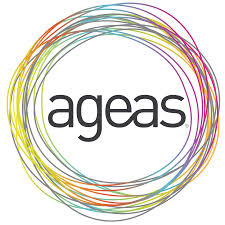Chinese government asks people not to travel for Chinese New Year
February 2, 2021 Category ![]() Health, Weekly
Health, Weekly
To avoid further spread of the coronavirus, the Chinese government has urged people to stay in the cities where they work during the Chinese New Year holiday in February. But they are still expected to make 1.15 billion trips, 60% lower than in 2019 and 20% lower than in 2020. The Civil Aviation Administration of China (CAAC) expected to handle 8,850 flights and 540,000 passenger trips, a year-on-year decrease of 46.7% and 71.2%, respectively. The Ministry of Transport lowered the estimated number of trips from 1.7 billion to 1.15 billion, as stricter epidemic prevention measures discourage people from traveling. People who still want to travel home must present a negative nucleic acid test taken in the seven days before returning home. Airline bookings made as of January 19 for Lunar New Year travel have plunged 73.7% compared with the holiday period in 2019, according travel analytics firm ForwardKeys. A government notice said that online and offline stores and supermarkets, as well as express companies, especially those in big cities, will be supported to stay open during the holiday, so that people’s needs will be well met. More TV programs and online movies will be offered during the holiday period. In some cities, local governments are offering subsidies of up to CNY2,000 per person to people who remain in the city during the holiday.
“As most Chinese migrant workers and employees are clustered in large, coastal cities, the new policy would bring some negative impact to the consumption sector in smaller, inland areas, which would in turn drag general consumption down to some extent,” Hu Qimu, Chief Researcher at the Sinosteel Economic Research Institute, told the Global Times, adding that some industries might also be negatively influenced, especially culture-related industries and tourism. But he argued that such impact will be limited and will not halt the general trend of economic recovery in China, citing several reasons including government support and manufacturing momentum.
Companies and experts told the Global Times that residents’ not going home for the Spring Festival is a bonus for China’s manufacturing industry, as companies will not have to worry about the usual post-holiday staff shortages, and they will be able to continue to fulfill orders. China’s e-commerce firm Alibaba told the Global Times in a statement that the low-mobility policy has already promoted sales of pre-prepared Spring Festival eve dinners and other products. Sales of many home appliances have risen over 100%, or even 1,000%, the statement said.
There was a small Covid-19 outbreak in Shanghai, which has been brought under control, according to Mayor Gong Zheng. There have been 16 cases since January 21. More than 41,000 people have been screened, all negative. In Beijing, people from low-risk areas in China arriving between January 28 and March 15 must show negative results for Covid-19 tests taken within seven days before entry, Xu Hejian, Spokesman of the Beijing city government, said. Visitors from areas of high- or medium-risk areas where infections have been found, or from cities that are under lockdown, will not be allowed to enter Beijing, according to existing rules. After arrival, travelers who are allowed in must monitor their health for signs of infection for 14 days, though they will be allowed to move freely, and Covid-19 tests will also be performed on the seventh and 14th day, Xu said.
The Civil Aviation Administration of China (CAAC) has ordered airlines to refund tickets without charge to travelers who decide to cancel their travel plans during the Spring Festival travel period from January 28 to March 8. The policy is intended to minimize mobility during the holiday period and reduce the risk of Covid-19 transmission. “Chinese airlines’ profits will worsen, as load factors and fares are already very low, and airlines will also face a cash crunch,” Zheng Hongfeng, CEO of information provider VariFlight told the Global Times. CAAC predicted that the number of travelers in the coming 40-day travel peak will be around 39 million, almost the same as last year. The average airfare had fallen to CNY651.36, the lowest for Spring Festival air travel in five years, travel website qunar.com said. For example, the fare from Beijing to Harbin in Heilongjiang province on February 10, one day ahead of the Lunar New Year eve, is about CNY800 or 45% off the regular price, while the lowest fare from Beijing to Sanya in Hainan province is around CNY700, 77% off.
China planned to vaccinate 50 million people before Chinese New Year on February 12. Residential communities in Beijing have started registering residents between 18 and 59 last week. They are expected to receive the vaccine after Spring Festival. Feng Duojia, President of the China Vaccine Industry Association, told the Global Times that elderly people are given priority over the general public in China, but since the related data of elderly people from clinical trials have not been released, it is understandable to start the vaccination campaign for the general public. Yang Zhanqiu, a virologist at Wuhan University, said that about half of seniors have pre-existing conditions who may develop severe side effects after vaccination, and China has to ensure their safety.
The Chinese Center for Disease Control and Prevention (CDC) announced on January 31 that the country has so far administered more than 24 million doses of Covid-19 vaccines. There were 2,016 domestically transmitted Covid-19 cases in January – the highest number since March 2020. Seven Chinese-made Covid-19 vaccines have entered phase-three clinical trials, while nine others have started lower-level trials. Two vaccines are currently used in China: one from the China National Biotec Group and CoronaVac, developed by Sinovac Biotech. Both are inactivated vaccines.
Meanwhile, Hungary has become the first country in the European Union to use a Chinese vaccine, which will allow the vaccination of 2.5 million of its 9.7 million people. Delivery of the Sinopharm vaccine will be spread out over four months. Sinopharm has been approved for use in several countries, including Serbia and Pakistan, while Turkey received a second shipment of a vaccine produced Sinovac.
- KURT VANDEPUTTE (UMICORE) APPOINTED CHAIRMAN OF THE BOARD OF THE FLANDERS-CHINA CHAMBER OF COMMERCE (FCCC)
- Webinar: “Knowing Your Chinese Partner” – May 26, 2021, 10 am – 12 am
- EMA starts rolling review of CoronaVac, WHO approves Sinopharm vaccine for emergency use
- The Global Times warns not to politicize the Comprehensive Agreement on Investment (CAI)
- Hainan to become biggest duty-free market in the world





























